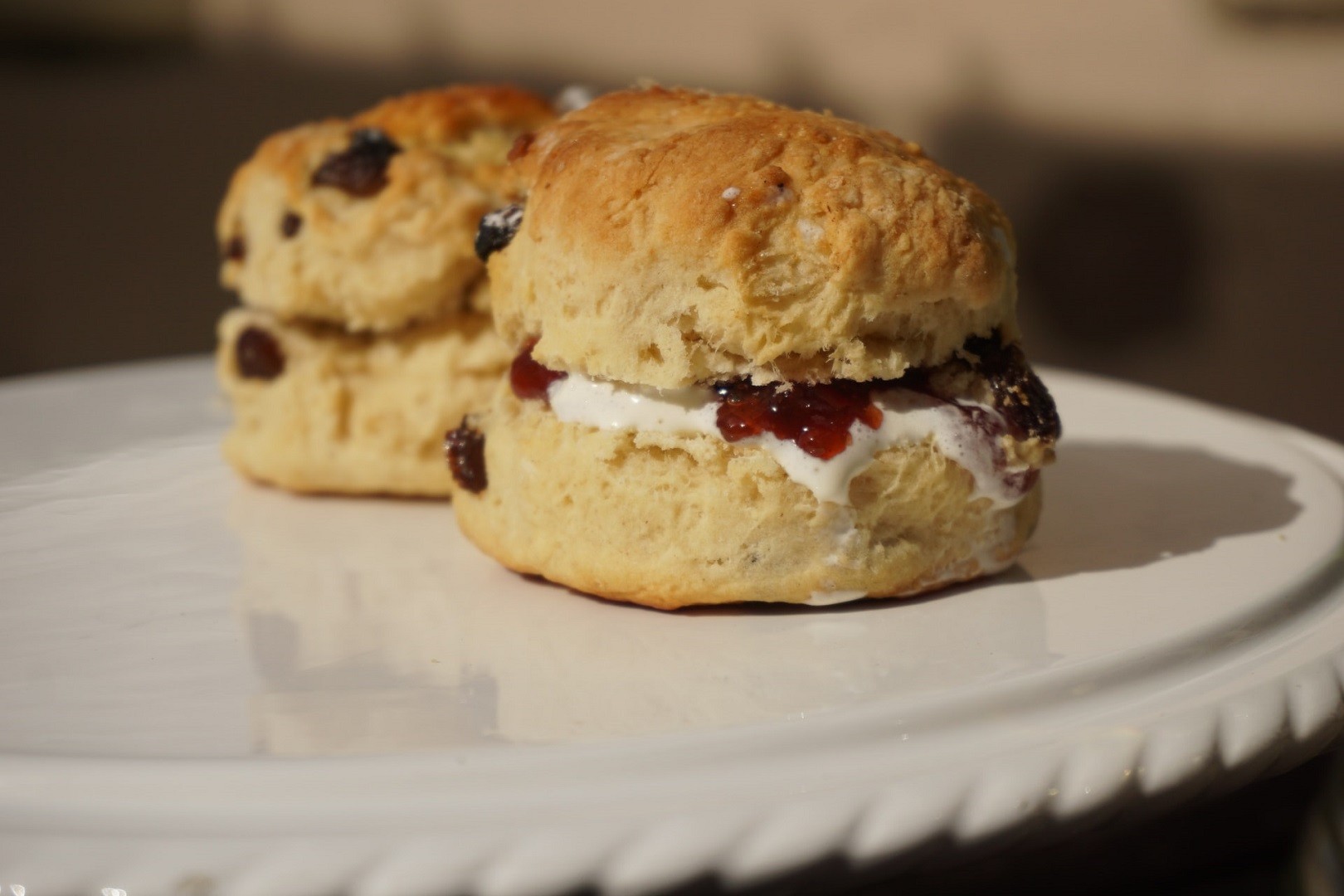
Scones are quick and easy to make and are an excellent afternoon tea treat. The three important secrets to good scones are light kneading, a hot oven and placing them close together which will help them to rise.
According to folk, the name "scone" is thought to have come from the Scottish name for the Stone of Destiny, where Scottish kings were (allegedly) once crowned.
The first appearance of the word "scone" in print was in a Scottish version of the Aeneid in 1513. Hundreds of years before baking powder, the leavening agent was buttermilk, and the scones were cooked on a griddle rather than baked. Also, the scones were cooked in rounds that were then cut into wedges, rather than being shaped into wedges before baking as they are today.
Be it high tea, Devonshire tea or cream tea, among the many delicacies shared in the timeless mid-afternoon ceremony, the scone has become a jam and cream staple.
Ingredients
- 3 cups self-raising flour
- 3 tablespoons caster sugar
- 80g butter, chopped
- 1 cup (250mL) buttermilk
Instructions
- Preheat the oven to 220°C. Sift the flour into a large bowl and stir in the sugar. Add the butter and use your finger tips to rub the butter into the flour.
- Consider this part therapeutic rather than time consuming. When the mix resembles bread crumbs, add the buttermilk. Stir with a flat-bladed knife until the mixture is starting to come together.
- Turn onto a lightly floured surface and knead just until dough is smooth. Use your hand to pat the dough into a round 2cm deep.
- Cut out the scones with a 5cm scone cutter and transfer to a lightly floured tray. Space less than a centimetre apart and brush the tops with extra buttermilk. Bake for 10-15 minutes until golden brown on top and cooked through.
- Serve warm with raspberry jam and thick cream.